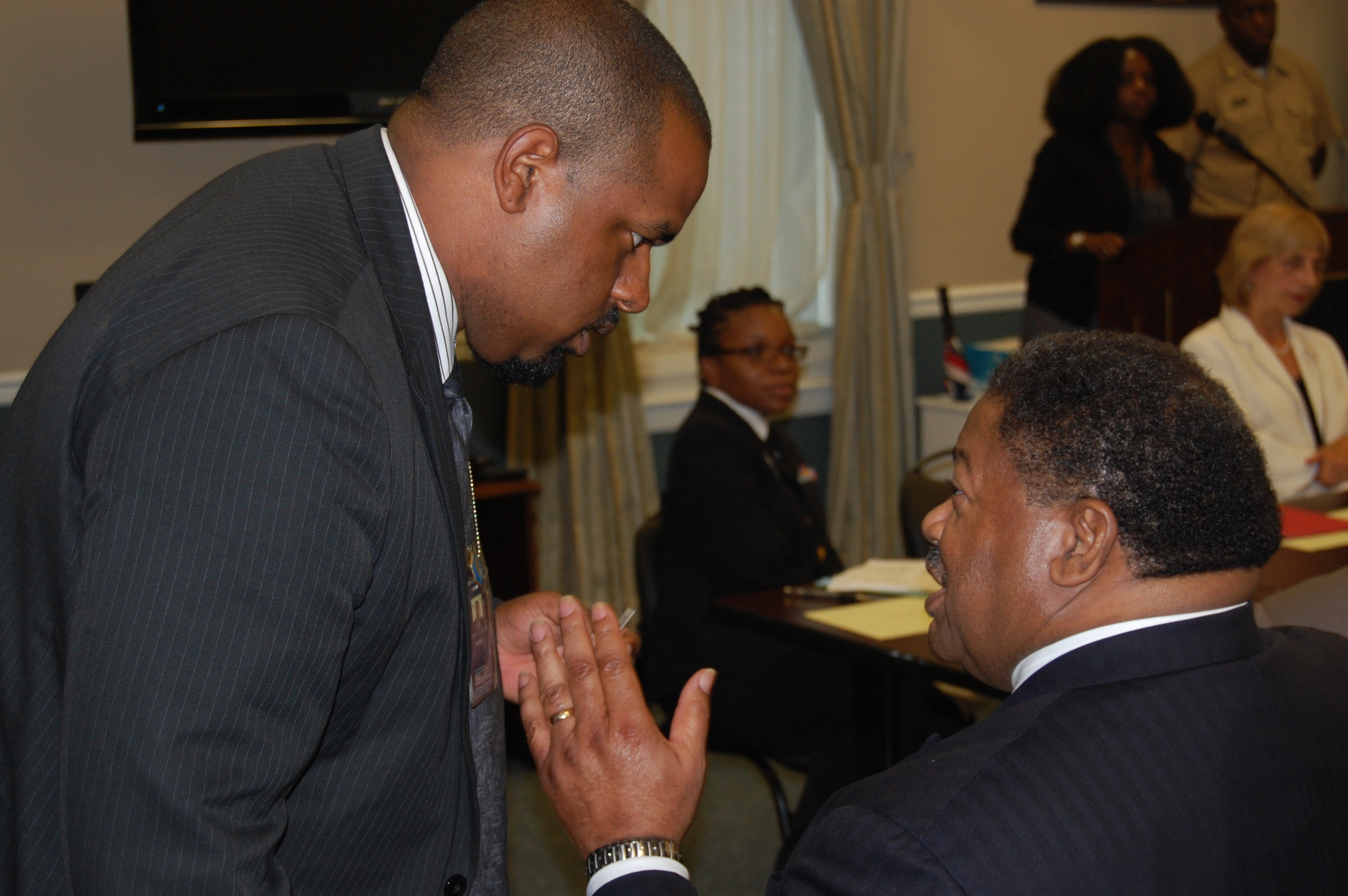
Braving the heat wave gripping much of the country, nearly 100 faith and community leaders visited the White House recently for a roundtable discussion to raise awareness and educate communities about sickle cell disease. Gathered inside the Truman Room at the White House Conference Center, these leaders had the opportunity to hear briefings on HHS’ Sickle Cell Disease Initiative and ongoing work on this important health issue from senior HHS officials. They included Dr. Dora Hughes,Counselor for Science and Public Health for Secretary Kathleen Sebelius; Dr. Garth Graham, Deputy Assistant Secretary for Minority Health;Dr. Susan Shurin, Acting Director of the National Heart, Lung, and Blood Institute at National Institutes for Health (NIH); Dr. Sara Copeland, Medical Officer with the Genetic Services Branch at Health Resources and Services Administration (HRSA); and Dr. Althea M. Grant, Chief of the Epidemiology and Surveillance Branch at the Centers for Disease Control (CDC).
Speaking from the viewpoint of individuals who are living with sickle cell disease, Dominique Friend, a sickle cell disease advocate, spoke about the day-to-day challenges confronting patients and the need for greater education within the community.
Joshua DuBois, Director of the White House Office of Faith-Based and Neighborhood Partnerships also attended the discussion, stressing the importance of faith and community leaders partnering to solve important health issues like sickle cell disease. “Faith and community leaders are integral to promoting the public health of their communities,” said DuBois. “We look forward to working with faith and community leaders to deliver this important message of health and wellness to their communities.”
To emphasize the importance of these connections, the Sickle Cell Disease Association of America (SCDAA) announced a national partnership with the National Baptist Congress of Christian Education to mobilize congregations and other faith-based organizations around the issue sickle cell disease education and awareness. This project and partnership will provide the faith community with the tools and information needed to dispel the stigma associated with Sickle Cell Disease and to counter the misperceptions about individuals with this disease.
Dr. George Waddles, President of the National Baptist Congress of Christian Education noted that the role of the church is “not just worship” but also a place for health and wellness in the community. He added that this partnership will inform other public health outreach initiatives within their denomination. The National Baptist Congress of Christian Education is the education division of the National Baptist Convention, U.S.A., Inc.
“HHS’ strong partnerships with faith and community leaders provide a unique opportunity to improve care for people with sickle cell disease,” said Dora L. Hughes. “Secretary Sebelius’ Sickle Cell Disease Initiative will improve the lives of individuals with sickle cell disease by enhancing their ability to access quality care. Today’s discussion bridges the gap between what is happening at research labs and in local communities to help develop healthier communities.”
An estimated 72,000 Americans live with Sickle Cell Disease (SCD) in the United States and approximately two million Americans carry the Sickle Cell Trait (SCT).
Acacia Bamberg Salatti is the Deputy Director of the Center for Faith-based and Neighborhood Partnerships (The Partnership Center) at the U.S. Department of Health and Human Services.



